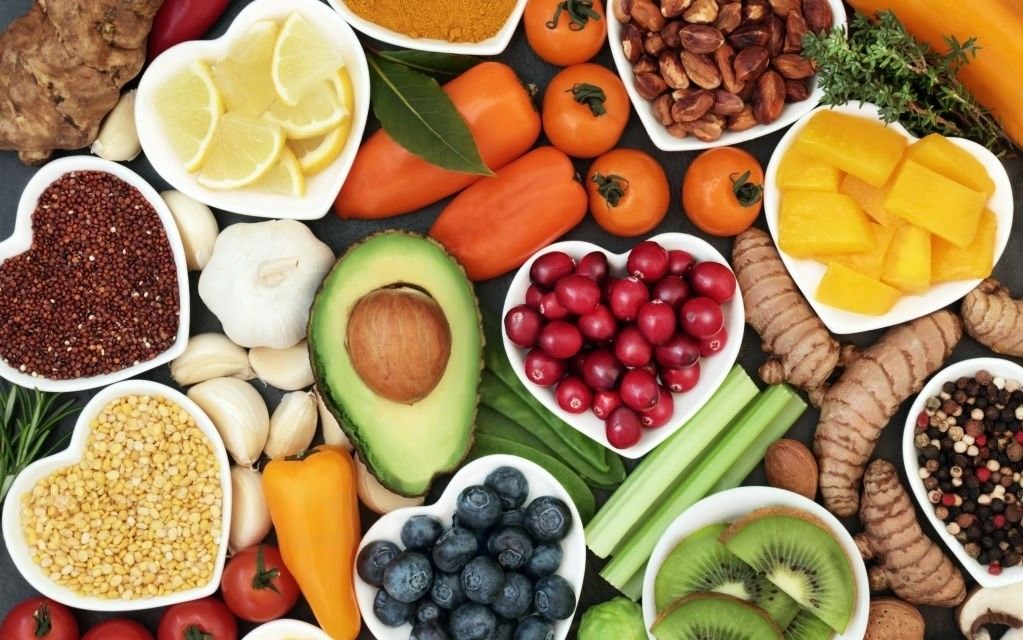The Power of Fiber: An Essential Nutrient for Your Health
Dietary fibre has enormous health-promoting potential right from assisting digestion and weight management to lowering the risk of heart disease.

Dietary fiber, often termed as the "roughage," is an essential nutrient that plays a vital role in maintaining our health. As an indigestible part of plant foods, fiber has a remarkable effect on digestion and overall health. Despite the knowledge of its benefits, many people don't get enough fiber in their diet. This blog will delve into the power of fiber, the logic behind its health benefits, and why it is essential for your health.
The Power of Fiber
Dietary fiber is classified into two categories: soluble, which dissolves in water, and insoluble, which does not. Soluble fiber helps lower glucose levels and blood cholesterol, while insoluble fiber aids in digestion and can provide a 'filling' effect.
1. Promotes Digestive Health
Fiber adds bulk to the diet, aiding in better digestion by helping prevent constipation. It helps food to move smoothly through the digestive tract, reducing the likelihood of irritable bowel syndrome and diverticular disease.
2. Aids in Weight Management
High-fiber foods tend to be more filling, so you're likely to eat less and stay satisfied longer, which can help with weight management. Fiber's ability to absorb water in the stomach makes you feel fuller, reducing overeating.
3. Controls Blood Sugar Levels
Soluble fiber, found in oats, peas, beans, apples, and citrus fruits, can slow the absorption of sugar, thus improving blood sugar levels. A diet high in soluble fiber can help prevent type 2 diabetes.
4. Reduces Heart Disease Risk
Consuming enough fiber can help lower the risk of heart disease by reducing levels of LDL (bad) cholesterol. It does this by binding to dietary cholesterol and removing it from the body before it enters circulation.
5. Promotes Longevity
High fiber intake may reduce the risk of dying from heart disease and all cancers, according to a study published in Archives of Internal Medicine. Participants with high fiber intake had a 22% lower risk of dying over nine years compared to those who consumed less fiber.
6. Supports Healthy Skin
Fiber can help flush toxins out of the body, improving the health and appearance of the skin. Some fiber, like psyllium husk, can even improve skin health by moving yeast and fungus out of the body, preventing them from being excreted through the skin.

Daily Fiber Intake
The American Heart Association recommends an intake of 25 to 30 grams of fiber each day. Foods rich in fiber include whole grains, fruits, vegetables, legumes, nuts, and seeds.
SUMMARY
The power of dietary fiber in promoting health is immense. From aiding digestion and weight management to reducing the risk of heart disease, the benefits are plenty. Despite its importance, dietary fiber is often overlooked. By including a variety of fiber-rich foods in our diet, we can take advantage of the numerous health benefits it provides.
Jayti Shah is a Clinical Nutritionist with a master's degree in Clinical Nutrition and Dietetics. She is a member of the Indian Dietetic Association (IDA). Over the last 9 years, she has helped 400 clients in their clinical and weight loss journeys. She works with SocialBoat as a nutrition consultant.
At SocialBoat, we offer custom diet plans and guided workouts to help you achieve your goals in a 360-degree approach. Our gamified experience ensures that you don’t find workouts boring and we reward you for being consistent with your efforts.

REFERENCES
- Mayo Clinic. (2018). Dietary fiber: Essential for a healthy diet. [Online] https://www.mayoclinic.org/healthy-lifestyle/nutrition-and-healthy-eating/in-depth/fiber/art-20043983
- Anderson, J. W., Baird, P., Davis, R. H., Ferreri, S., Knudtson, M., Koraym, A., ... & Williams, C. L. (2009). Health benefits of dietary fiber. Nutrition reviews, 67(4), 188-205. https://academic.oup.com/nutritionreviews/article/67/4/188/1901012
- Slavin, J. L. (2005). Dietary fiber and body weight. Nutrition, 21(3), 411-418. https://www.sciencedirect.com/science/article/abs/pii/S089990070400332X
- Chandalia, M., Garg, A., Lutjohann, D., von Bergmann, K., Grundy, S. M., & Brinkley, L. J. (2000). Beneficial effects of high dietary fiber intake in patients with type 2 diabetes mellitus. New England Journal of Medicine, 342(19), 1392-1398. https://www.nejm.org/doi/full/10.1056/nejm200005113421903
- Brown, L., Rosner, B., Willett, W. W., & Sacks, F. M. (1999). Cholesterol-lowering effects of dietary fiber: a meta-analysis. American Journal of Clinical Nutrition, 69(1), 30-42. https://academic.oup.com/ajcn/article/69/1/30/4669268
- Park, Y., Subar, A. F., Hollenbeck, A., & Schatzkin, A. (2011). Dietary fiber intake and mortality in the NIH-AARP diet and health study. Archives of Internal Medicine, 171(12), 1061-1068. https://jamanetwork.com/journals/jamainternalmedicine/fullarticle/416025
- Jensen, G. S., Lenninger, M., Ero, M. P., & Benson, K. F. (2014). Consumption of nopal cactus fruit juice improves body weight, serum lipids, and blood glucose in a randomized controlled trial. Journal of Medicinal Food, 17(12), 1347-1354. https://www.liebertpub.com/doi/10.1089/jmf.2013.0182
- American Heart Association. (2018). Whole Grains, Refined Grains, and Dietary Fiber.https://www.heart.org/en/healthy-living/healthy-eating/eat-smart/nutrition-basics/whole-grains-refined-grains-and-dietary-fiber
